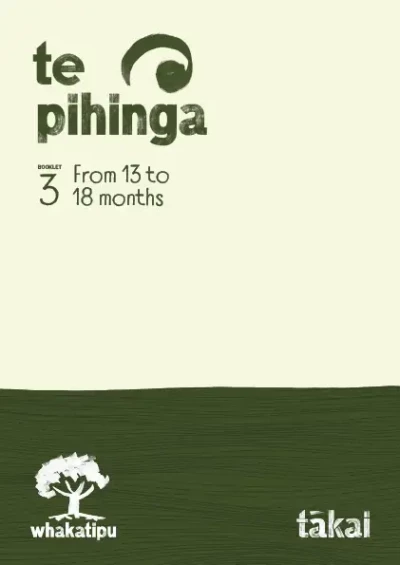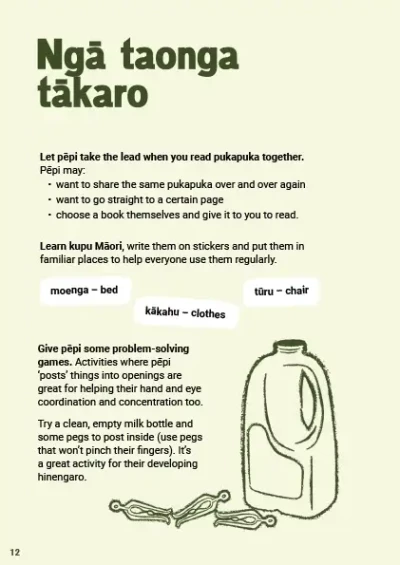
Gifting taonga for pēpi
Whānau are often given special taonga for their children. These can link them to their wider whānau, hapū, iwi, and to the person who gifted the taonga to pēpi.
On this page
Pounamu
Pounamu taonga like kapeu, manaia or tiki were sometimes used when tamariki were teething. They were used because their large size meant there was no risk of pēpi choking. The hard and cool stone is just right for soothing sore gums and helping teeth push through.
Ahakoa he iti, he pounamu
In 1849, Wiremu Maihi Te Rangikāheke wrote down the first version of the love story of Hinemoa and Tūtānekai. He used the whakataukī to refer to the love felt between people. He wrote, ‘Ahakoa, he aroha iti, he pounamu tonu.’ (A love that is brief is love nonetheless.)
Pounamu is found in Te Wai Pounamu (the South Island) or Te Wāhipounamu (South Westland) – the place of greenstone. In 1997 the Crown returned ownership of pounamu to Ngāi Tahu.
Tiki
A tiki is a carved figure, often made of greenstone, in the form of a human. Similar figures are found in many Polynesian cultures. Tiki depict the first mortal born to the gods. They're also a symbol of the human embryo, with the hands on the loins representing fertility and life.
Tiki can be large or small. Smaller versions are often worn as an adornment around the neck. They’re considered a good luck charm, and were believed to give the wearer clarity of thought and great inner knowledge.
Koru
The koru design is inspired by the ponga (New Zealand silver tree fern). It represents new life, personal growth, positive change and awakening. Koru are also associated with peace and harmony, so they make a wonderful gift for a new parent or pēpi, or anyone starting out on a new pathway.
Talking with whānau
It’s becoming more common to give taonga to mark significant milestones for pēpi and whānau.
Whānau might like to think about who they could approach to make taonga and what significance it will hold for them. They could store taonga in a waka huia and them on as whānau heirlooms in the future.
 pdf 11 MB
pdf 11 MB












